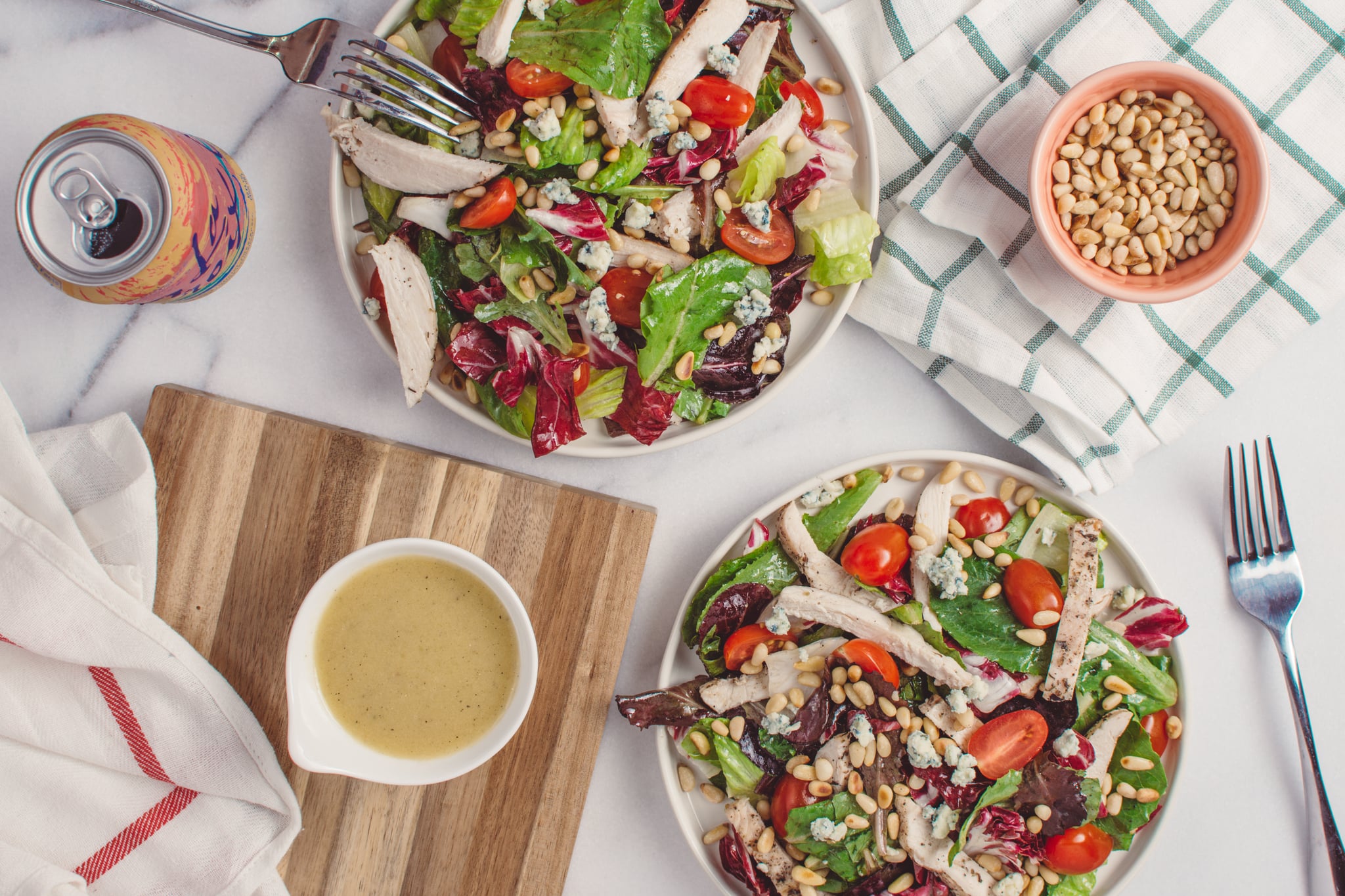Apple Cider Vinegar For Belly Fat
In Your Quest For a Flatter Stomach, Apple Cider Vinegar Probably Won't Help Much

There's no sign of the apple cider vinegar (ACV) craze slowing down anytime soon. People swear by the lip-smacking, pungent vinegar for everything from losing weight to improving their skin. But can it help you trim the belly fat and keep your love handles in check? Although more long-term studies are needed, some research suggests it can help reduce body fat, too.
Kelly LeVeque, celebrity nutritionist and author of Body Love: Live in Balance, Weigh What You Want, and Free Yourself From Food Drama Forever, tells POPSUGAR, "The antiglycemic effect of acetic acid, the active ingredient in vinegar, has been attributed to reduced starch digestion and decreased postprandial glucose levels." In other words, ACV is linked to reducing elevated blood sugar levels after a meal. "High blood glucose is responsible for elevated insulin, decreased fat burning, and increased fat storage," LeVeque explains.
However, Nora Minno, RD, CDN, also notes that, "Most studies are either done on animals or have small sample sizes, therefore more research needs to be done to draw concrete conclusions."
A Shot of Apple Cider Vinegar a Day Won't Keep Belly Fat Away
But it's worth noting that downing shots of ACV (which experts warn against, BTW) isn't enough to help you lose belly fat. Ashley Koff, RD and Espira by Avon nutritionist, says, "Avoid the hype; ACV can be part of a flat-stomach plan, but not if it's the only thing you add or do differently." Instead, she advises that you assess the state of your gut health and work on addressing any digestive issues you have with the help of your doctor. "You can't have a flat belly if your digestion isn't working smoothly," Koff says.
Here's What You Can Do Instead
Incorporating more bitter foods, like ACV, into your meals can help you control cravings and better manage your appetite. "Studies have shown that bitter foods can actually suppress the sweet sensors in the brain and therefore reduce sweet cravings," Minno explains. If you're hankering for something sugary, LeVeque says it might also mean you're dehydrated. "The next time you want something sweet, splash ACV or lemon in your water and drink it down," LeVeque says.
ACV can also act as a probiotic to aid with digestion and promote gut health because it's derived from fermented apple juice. "It includes magnesium, as well as some acids that can help the body break down nutrients and relax the digestive tract to move nutrients along," Koff adds.
Koff also likes blending it into overnight oats or a smoothie or putting it with sparkling water for a nonalcoholic spritzer. "I enjoy it in my salad dressings, and if I opt to enjoy a sandwich or wrap, a light drizzle helps bring down elevated glucose levels," LeVeque says. But Koff recommends sticking to an ounce or two of ACV daily. "Once a day or twice max is plenty to get results. More than that can deplete the body of potassium, and we already have trouble getting in this key nutrient for hydration and kidney and heart health," Koff says.
The Bottom Line
The key to losing belly fat is a combination of diet, exercise, and better sleep. "Get up and exercise first thing in the morning. A fasted workout creates the same benefits as intermittent fasting because a surge of human growth hormone and testosterone help burn fat," LeVeque says. Ab exercises are the real waist trainers, converting fat into muscle in your transverse abdominis and rectus abdominus, aka your deep abs. Focusing on sculpting and toning your obliques can also help you get rid of your muffin top.
Practicing some mindful eating techniques, like snacking only when you're hungry and taking time to chew your food, can regulate your hunger hormones (leptin and ghrelin), too. "Eat dinner before dark. An early dinner allows the body to digest the meal, balance blood sugar, and clear excess insulin before you go to bed so that you can benefit from a fat-burning night of sleep," LeVeque says. As Koff puts it, "When we are tired, we crave more nutrients, especially sugar."






